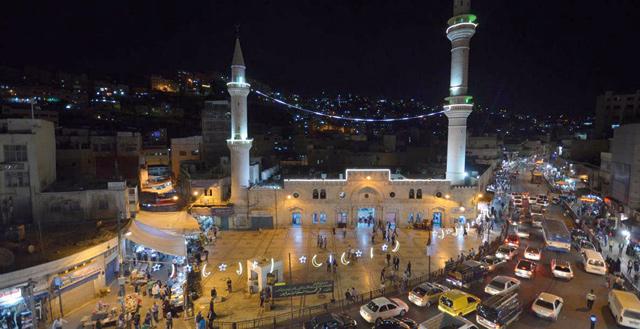- Local News
- Tue-2021-04-13 | 03:09 pm

The government’s decision to allow worshippers to attend Fajr and Maghrib prayers in mosques during the holy month of Ramadan drew positive reactions from the public.
Prime Minister and Minister of Defence Bisher Khasawneh on Sunday issued Circular No. 29 of 2021, based on the provisions of Defence Order No. 19 of 2020, which allows public movement on foot for 30 minutes to perform Fajr and Maghrib prayers in mosques during Ramadan, provided that they abide by the health protocols.
Saad Subhi, a Jordanian citizen in his early 40s, told The Jordan Times on Monday that communal prayer is one of the most significant rituals during Ramadan.
"Although the government has shortened the duration of our stay in mosques, but having some time in the mosque during the holiest month of the year is better than nothing,” Subhi said, adding that "it hurts to see mosques deserted.”
Mohammad Saleh, a Jordanian in his 30s, said that the government’s decision to conditionally allow worshippers to pray at mosques is a "wise choice” in preventing large gatherings amid the coronavirus crisis.
"This is a different kind of Ramadan for sure, but we still have half an hour to go and pray at the mosque during the fasting month, unlike last Ramadan during which mosques were closed all the time,” according to Saleh.
Awqaf Minister Mohammad Khalaileh said in a statement made available to The Jordan Times on Monday that the Ministry of Awqaf and Islamic Affairs prepared "an integrated plan that suits the spirituality of the holy month”.
The ministry’s Ramadan-related plan amid the coronavirus pandemic includes the Hashemite Scientific Councils’ programme, which will be broadcast following Maghrib prayer on Jordan TV, in addition to broadcasting Koran recitation and Islamic lectures on the Holy Koran Radio and the Jordan Radio.









